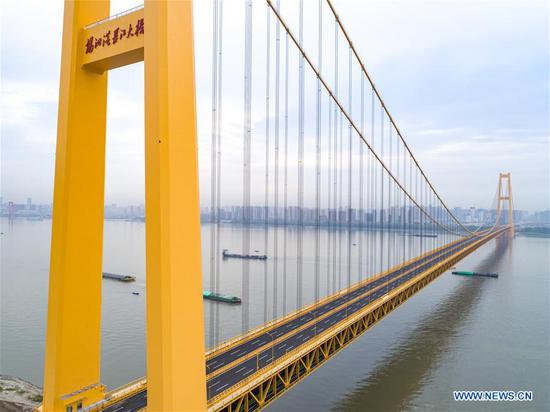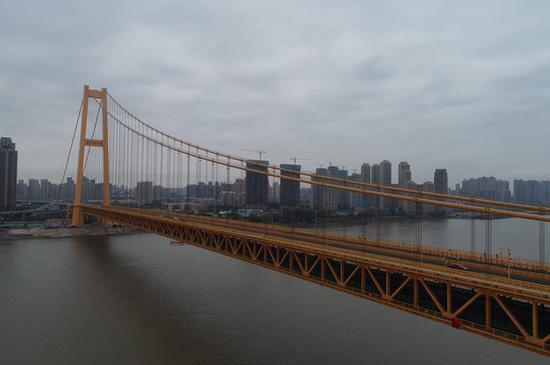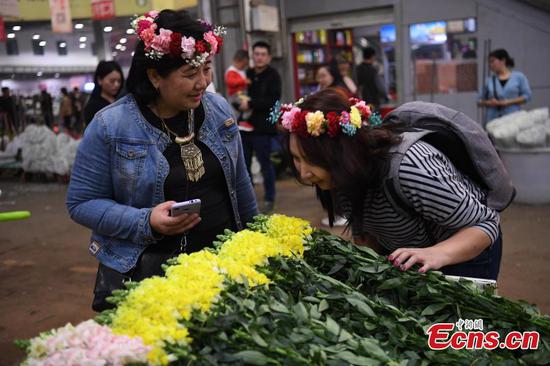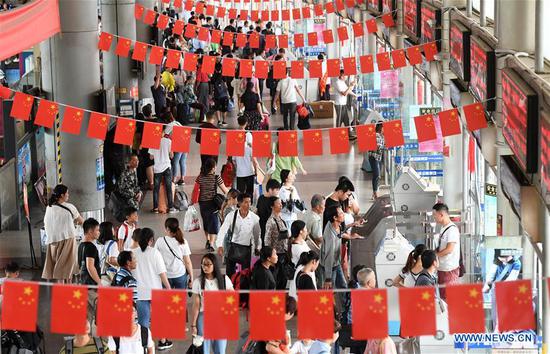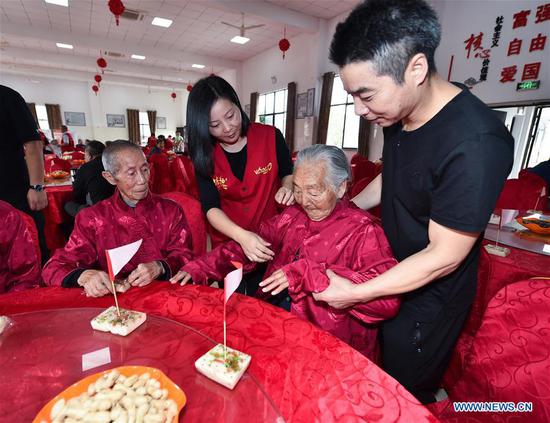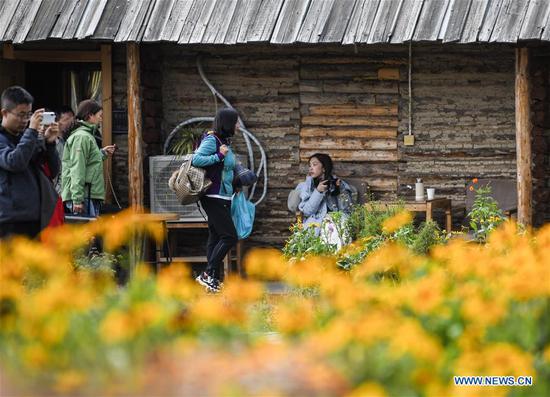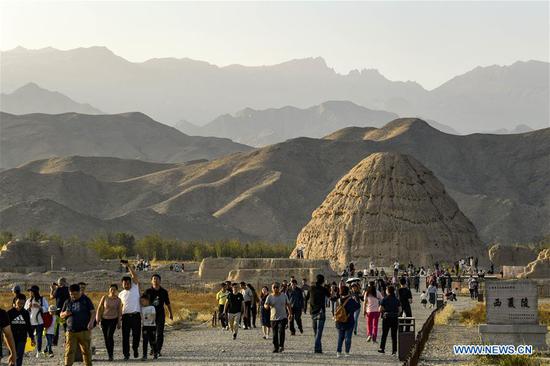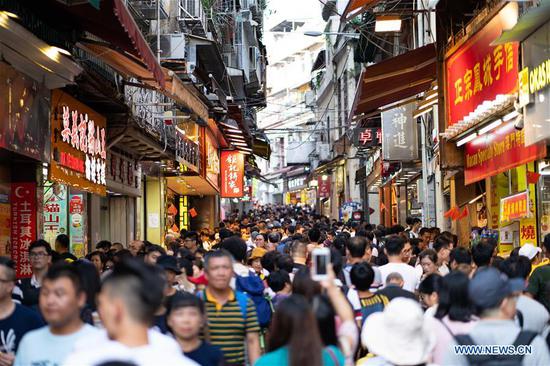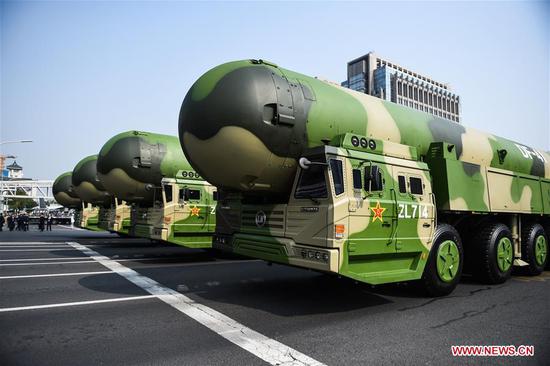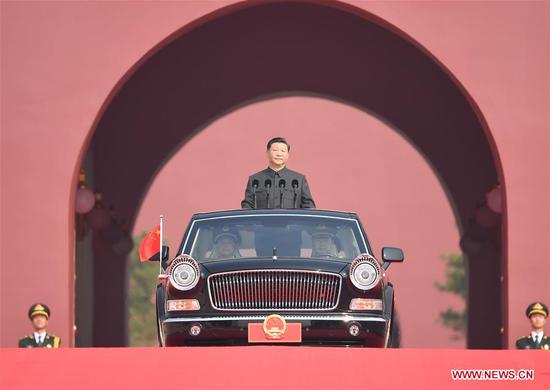
Starry Lee Wai-king (second left), chairwoman of the Democratic Alliance for the Betterment and Progress of Hong Kong, and other alliance members display photos of damage caused by protesters at a DAB branch office. (Photo/China Daily)
Chief Executive of Hong Kong, Carrie Lam Cheng Yuet-ngor, cautioned on Tuesday that all sectors of the city will face a "chilly winter", as protracted violence has taken a heavy toll on the city's economy and people's livelihoods.
Before the weekly Executive Council meeting, Lam told reporters that the social unrest that has lasted for more than four months has created far-reaching societal effects.
Hong Kong is in "a very dangerous situation" now, she said, vowing to stem violence with the utmost resolution.
Attacks by rioters brought the city's railway network to an unprecedented standstill on Friday night and through Saturday.
As of Tuesday, MTR, the city's rail operator, provided only limited subway service, and transportation remained chaotic for a fifth consecutive day.
The continued violence also has hit the special administrative region's service industries, one of its economic pillars and the source of many grassroots jobs.
Retail, food and beverage, hospitality and tourism sectors have been particularly hard hit.
Fearing damage, many shopping malls have closed early in recent days. Retail sales saw a 25 percent year-on-year drop in August. Lam also said an Executive Council member from the food and beverage sector has said that mass layoffs, even shutdowns, are expected in local restaurants.
Tourists visiting Hong Kong in August, the usual peak season, dropped by 40 percent year-on-year. During the nation's Golden Week holiday from Oct 1 to Monday, also a peak time for tourism, visitors in Hong Kong were half the number recorded in the previous year.
Lam said the HKSAR government will cut fees and rents for affected industries and provide tax waivers and unemployment allowances to affected residents.
She also called for more supportive measures, especially from commercial property owners and developers, for hard-hit tenants.
Lam expressed hope that Legislative Council meetings will resume as scheduled on Oct 16 to deliberate stalled bills, including livelihood-related projects worth more than HK$100 billion ($13 billion).
On Tuesday, the LegCo announced that work to repair large-scale vandalism by rioters on July 1 is almost finished.
The damage, which extensively affected people's livelihoods and daily lives, also drew opposition from local residents.
A Hong Kong resident surnamed Lau, 45, who works in the service industry, said Hong Kong's tourism sector has taken a hit from the continuation of violent protests. She said the drop in tourist numbers has resulted in one out of four newsstands shutting down on a street where a friend of hers makes a living.
Most owners of the newsstands are in their 60s or 70s, which means it is hard for them to find a different job to support themselves, she said. While Lau said her friend has been able to keep his business afloat, the friend's income has dwindled, providing just enough to eke out a living.
Another resident surnamed Xu, who owns a business in the food and beverage industry, said his business earnings have been severely affected in recent months.
His company used to have monthly revenue of HK$4 million, but that has dropped to less than HK$1 million. Xu said most companies in the industry are seeing expenses exceed income.
The pressure from utility bills and rent has always been considerable in Hong Kong, but it now has become much worse, he said.











